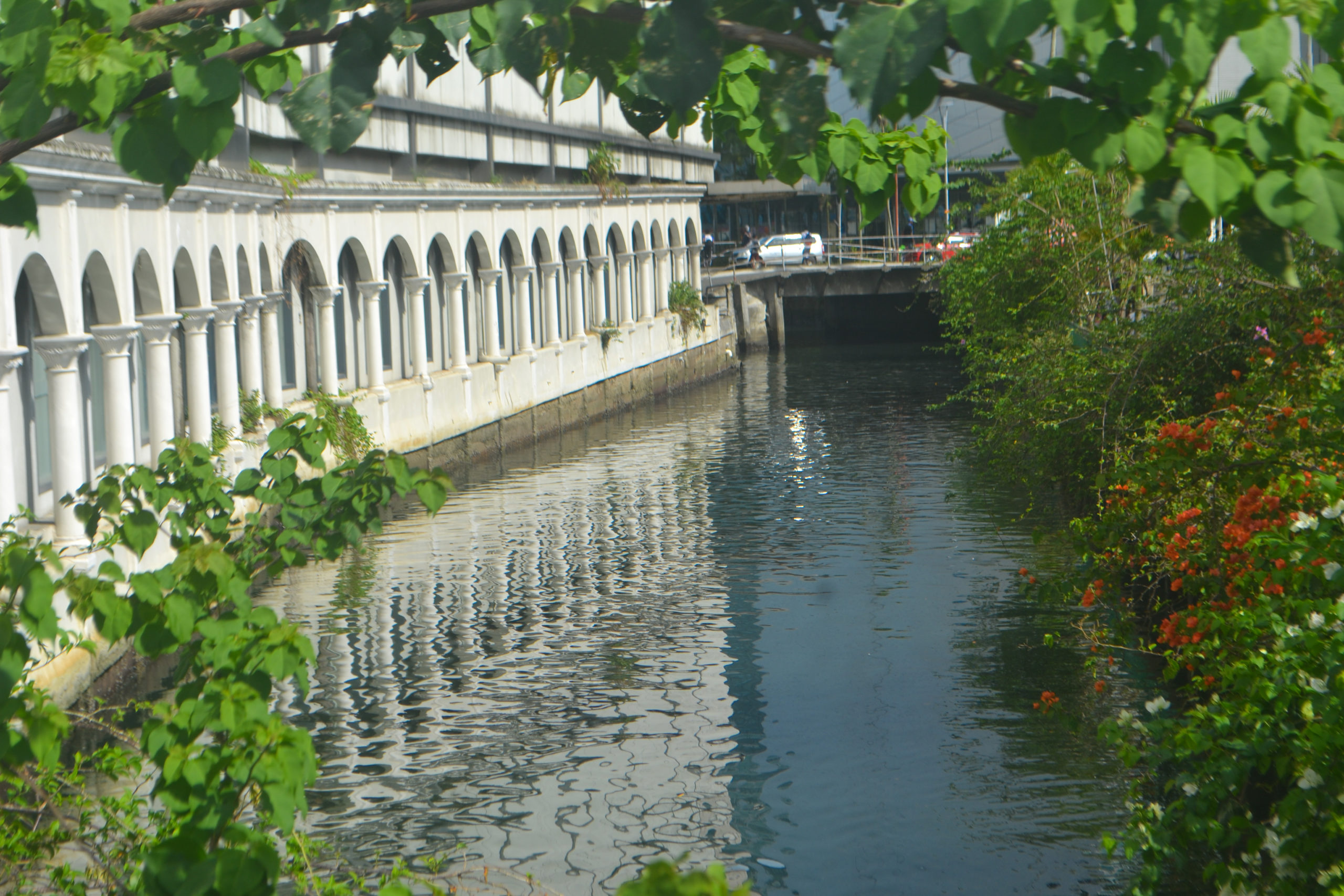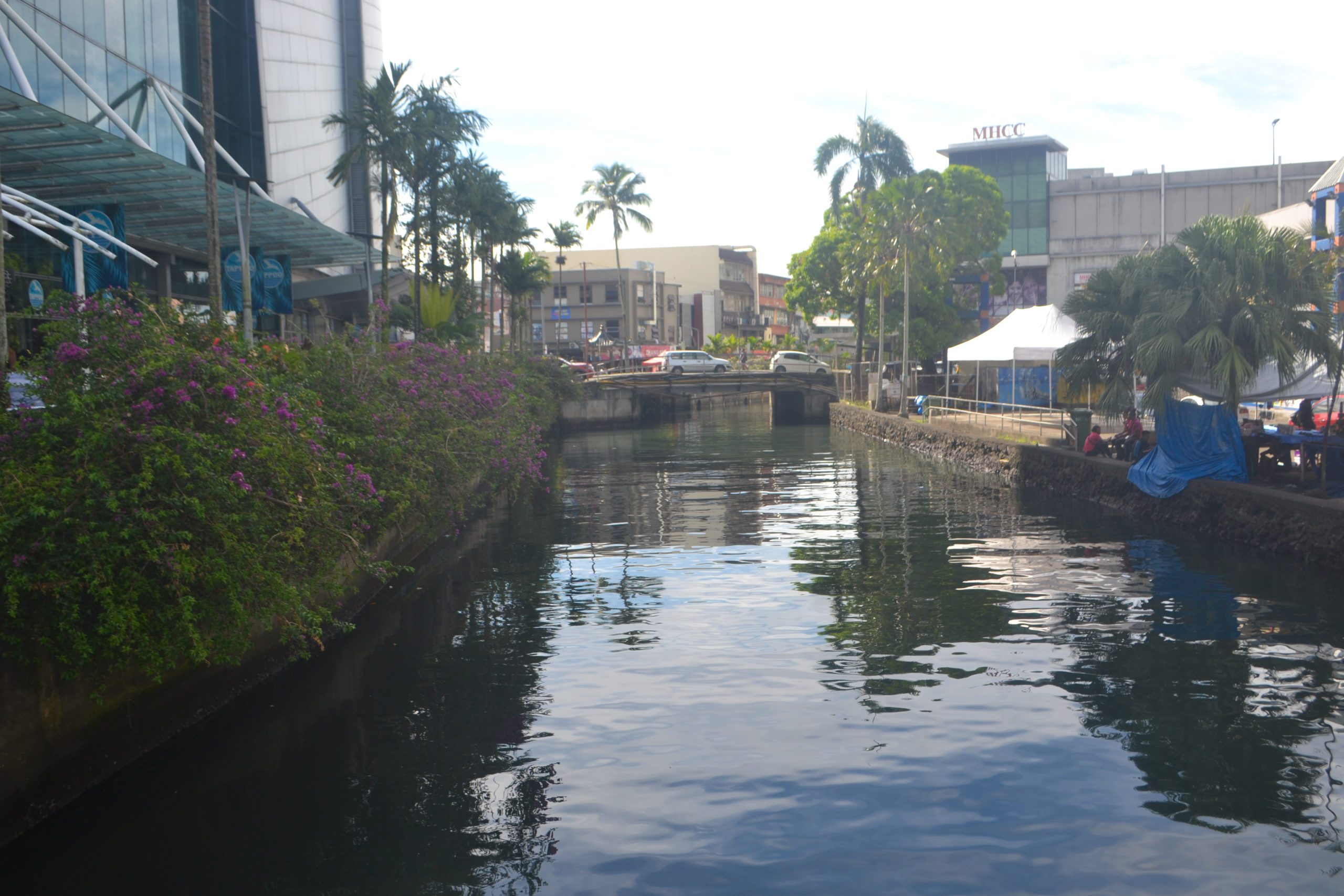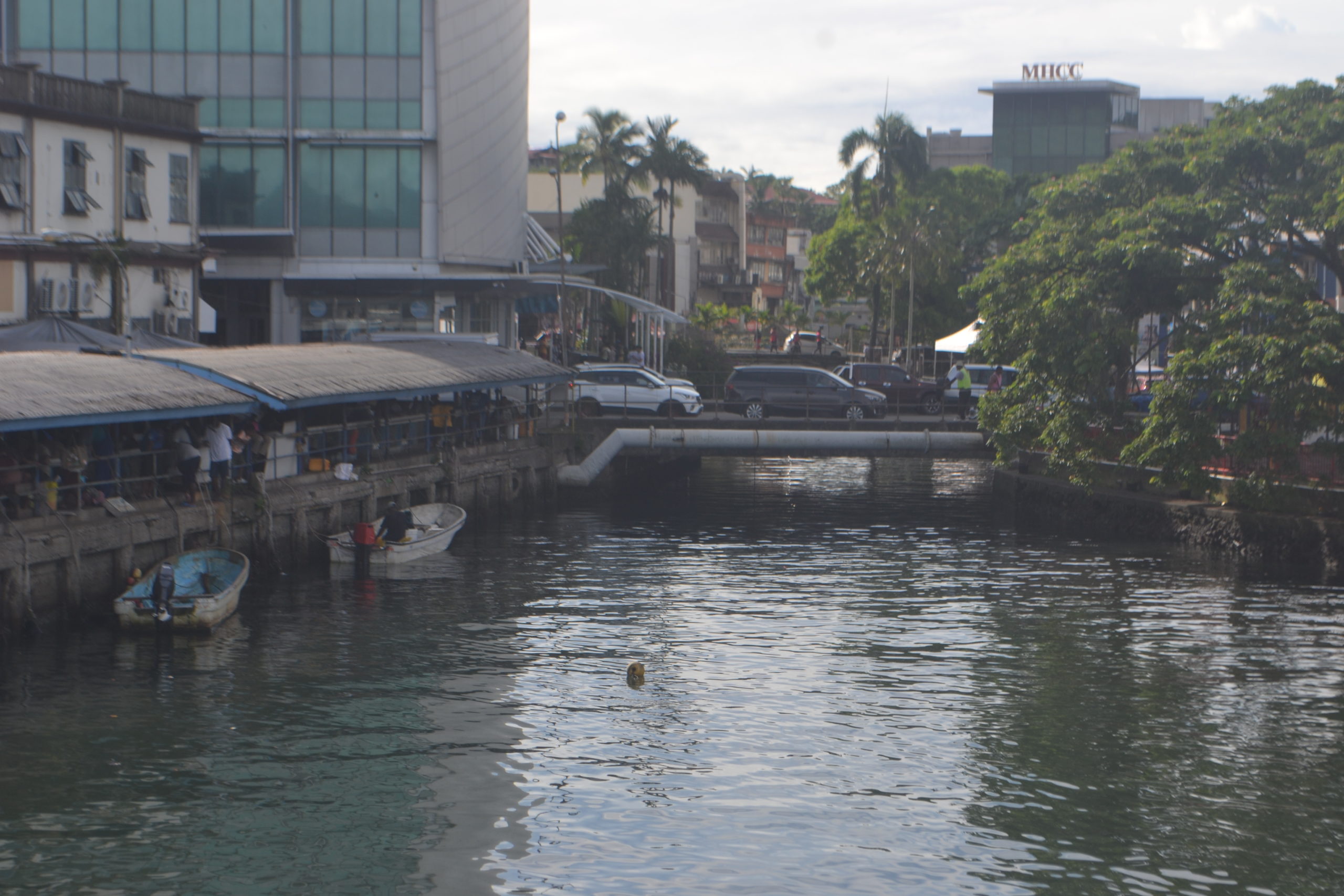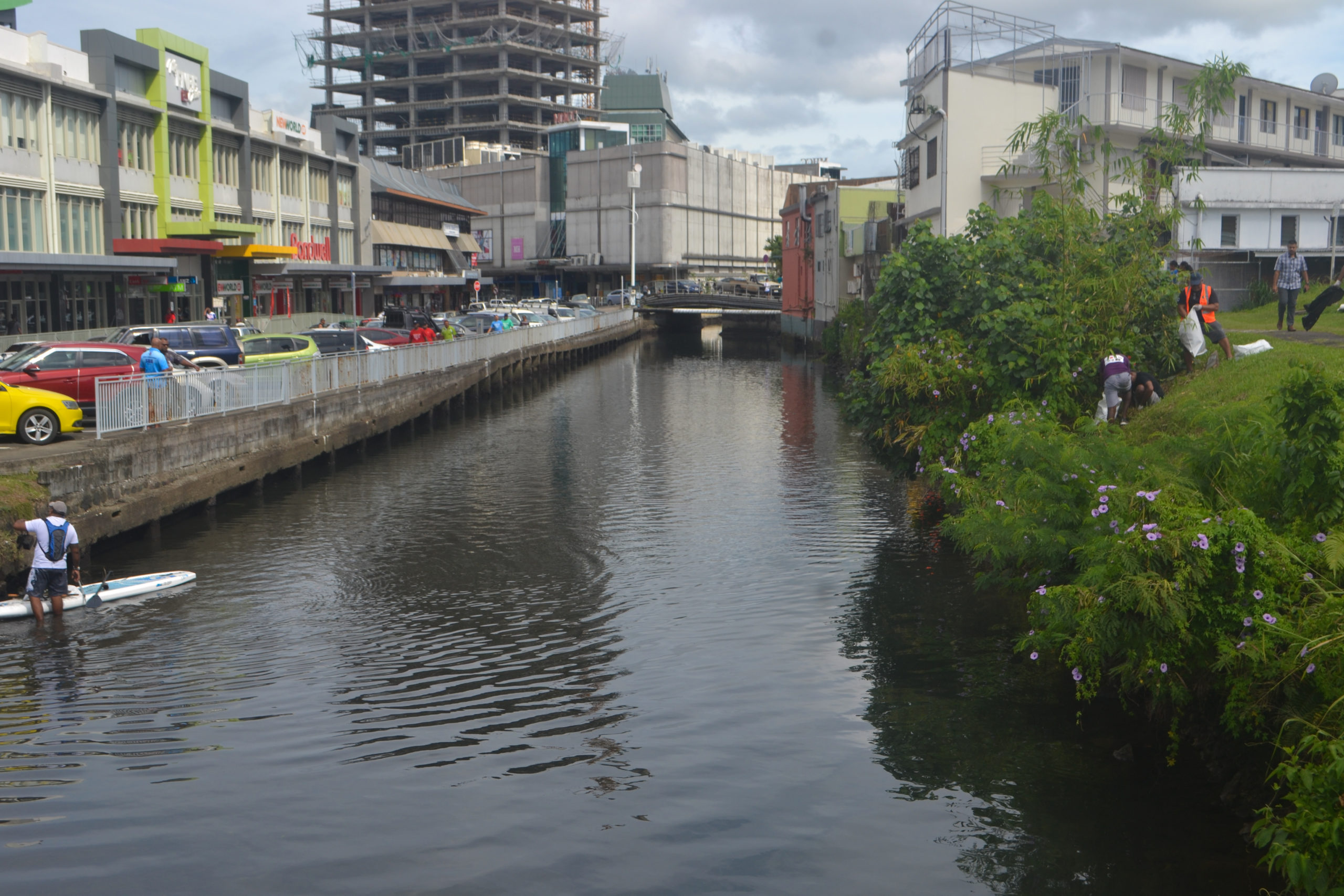Paddlers and volunteers clean up polluted Nabukalou Creek in Suva.
Paddlers and volunteers cleaning up the creek and its surrounding.
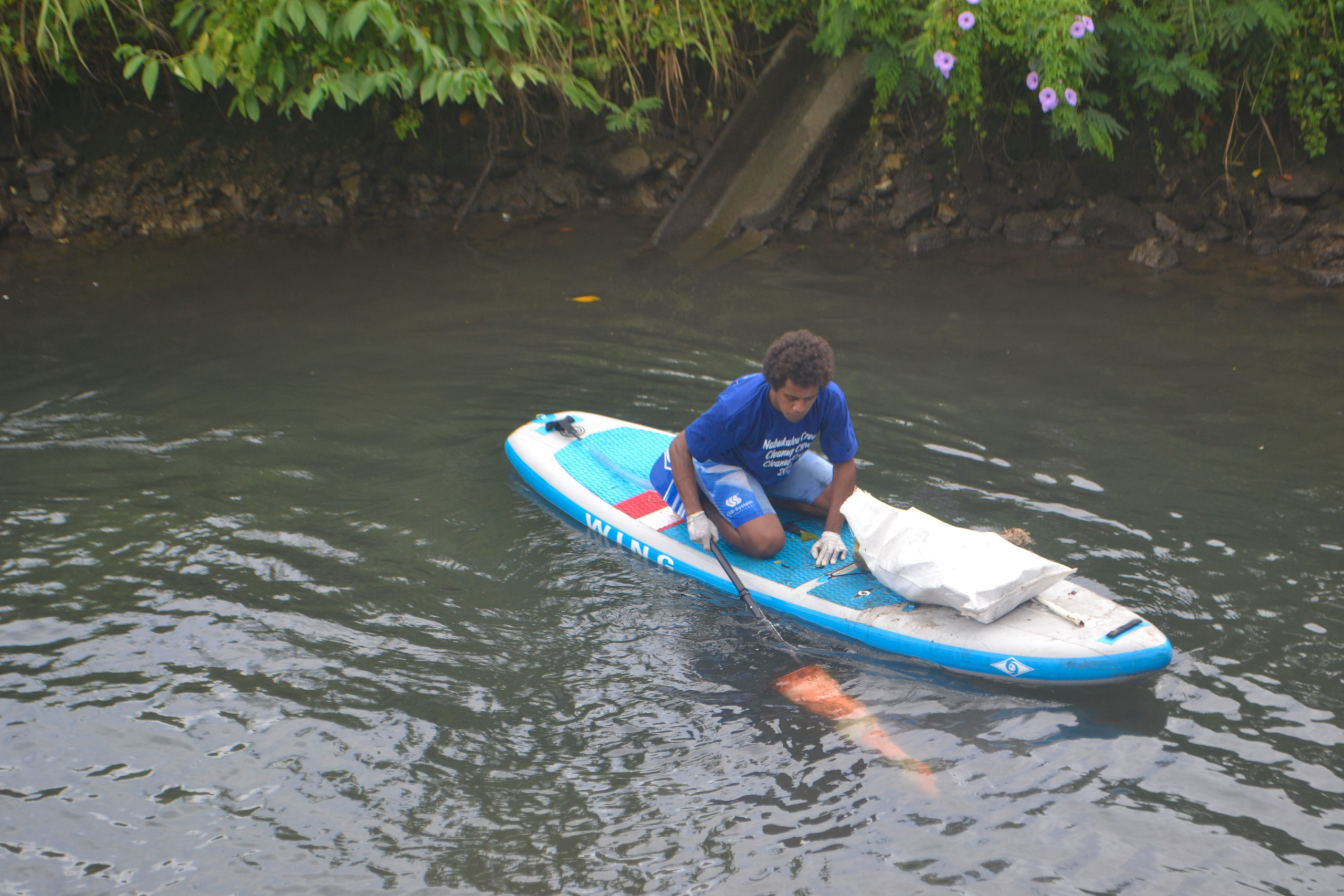
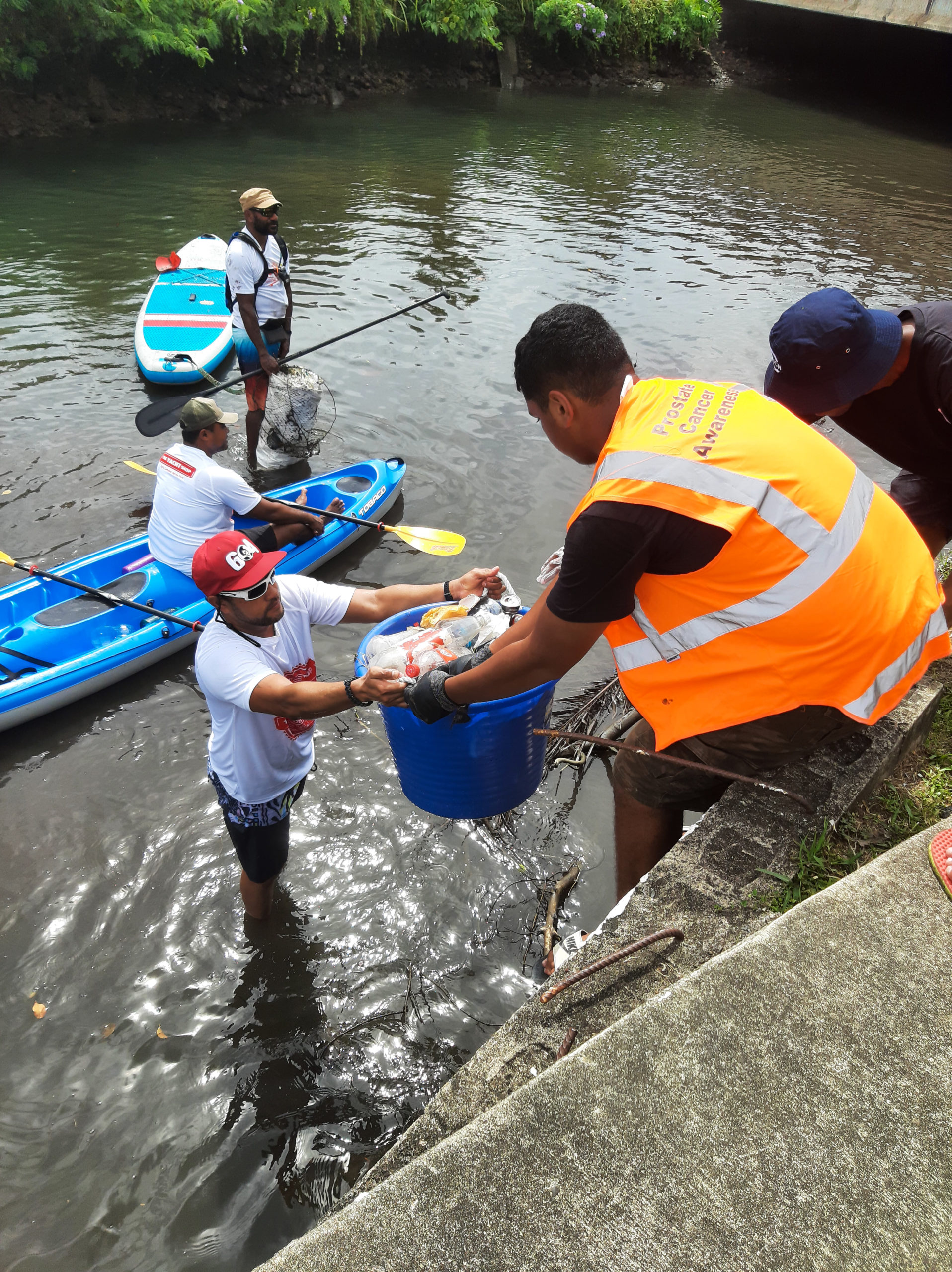
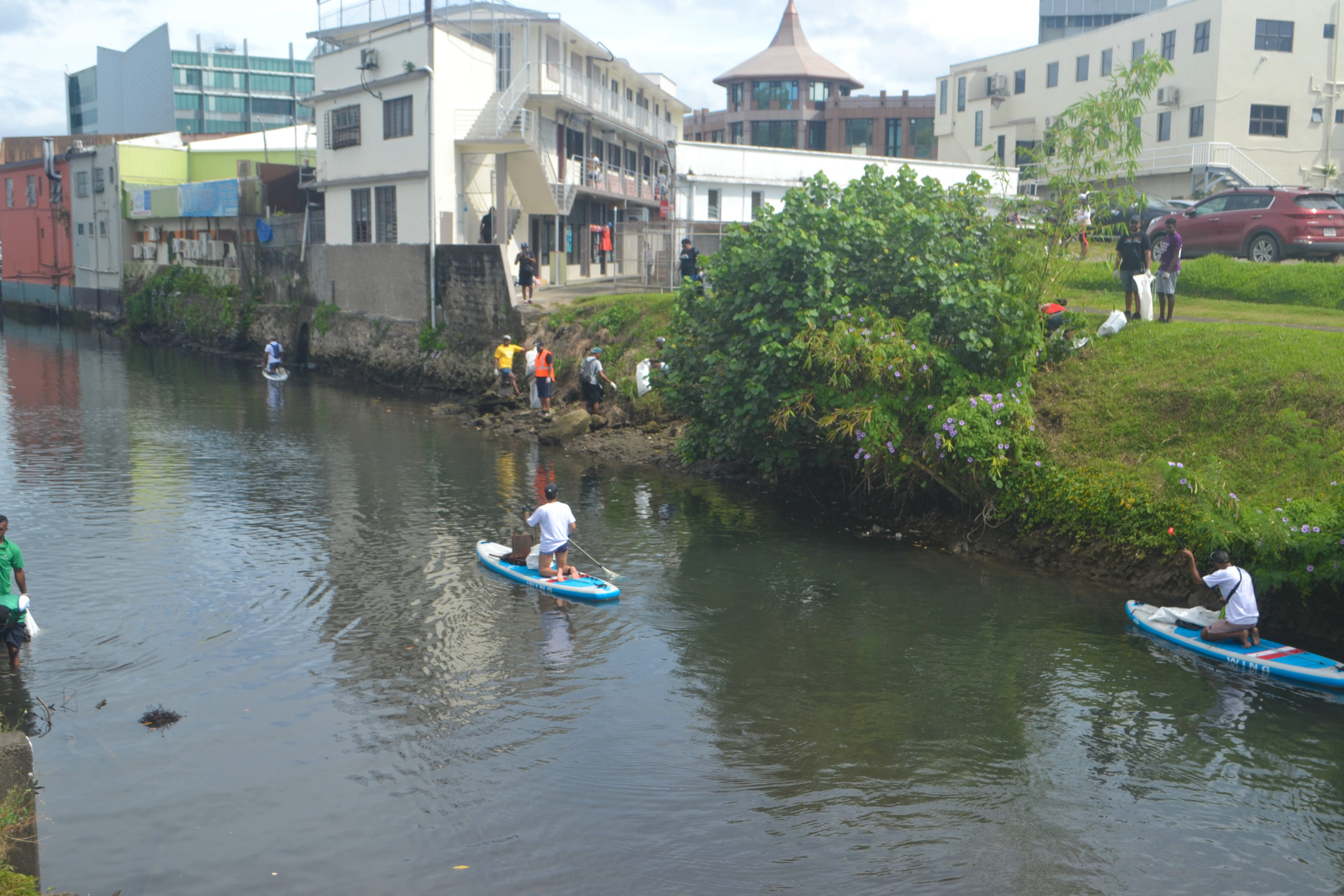
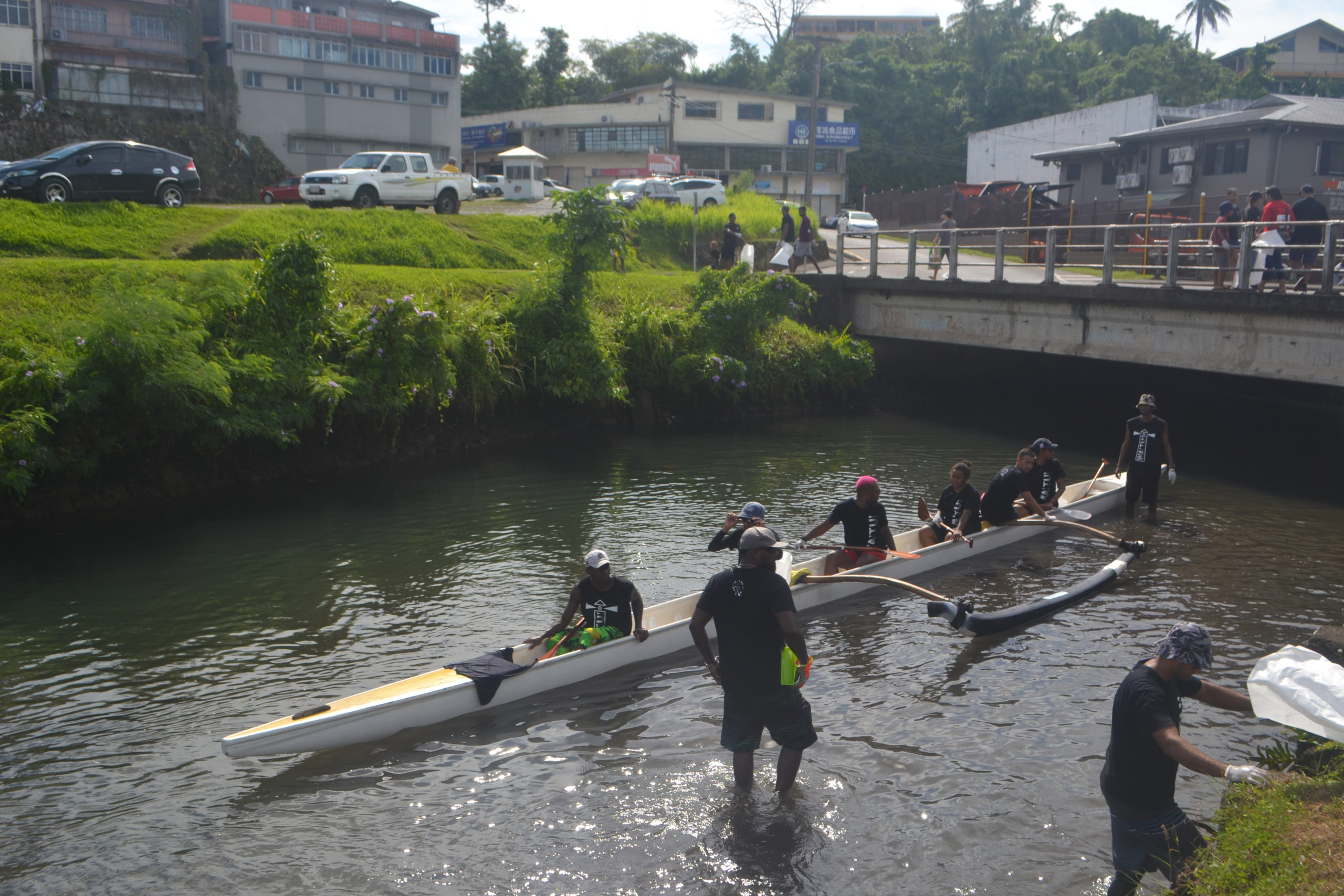
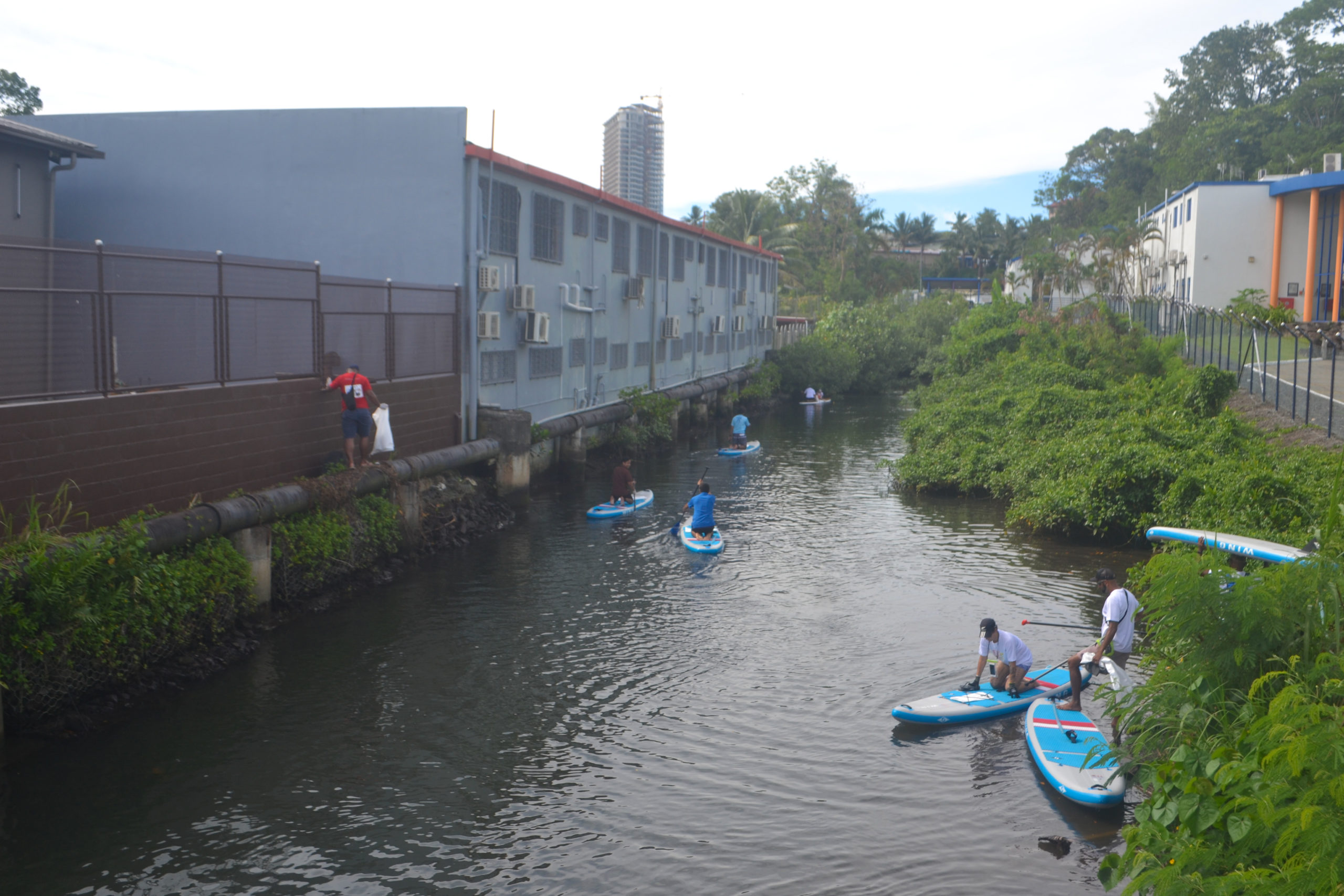
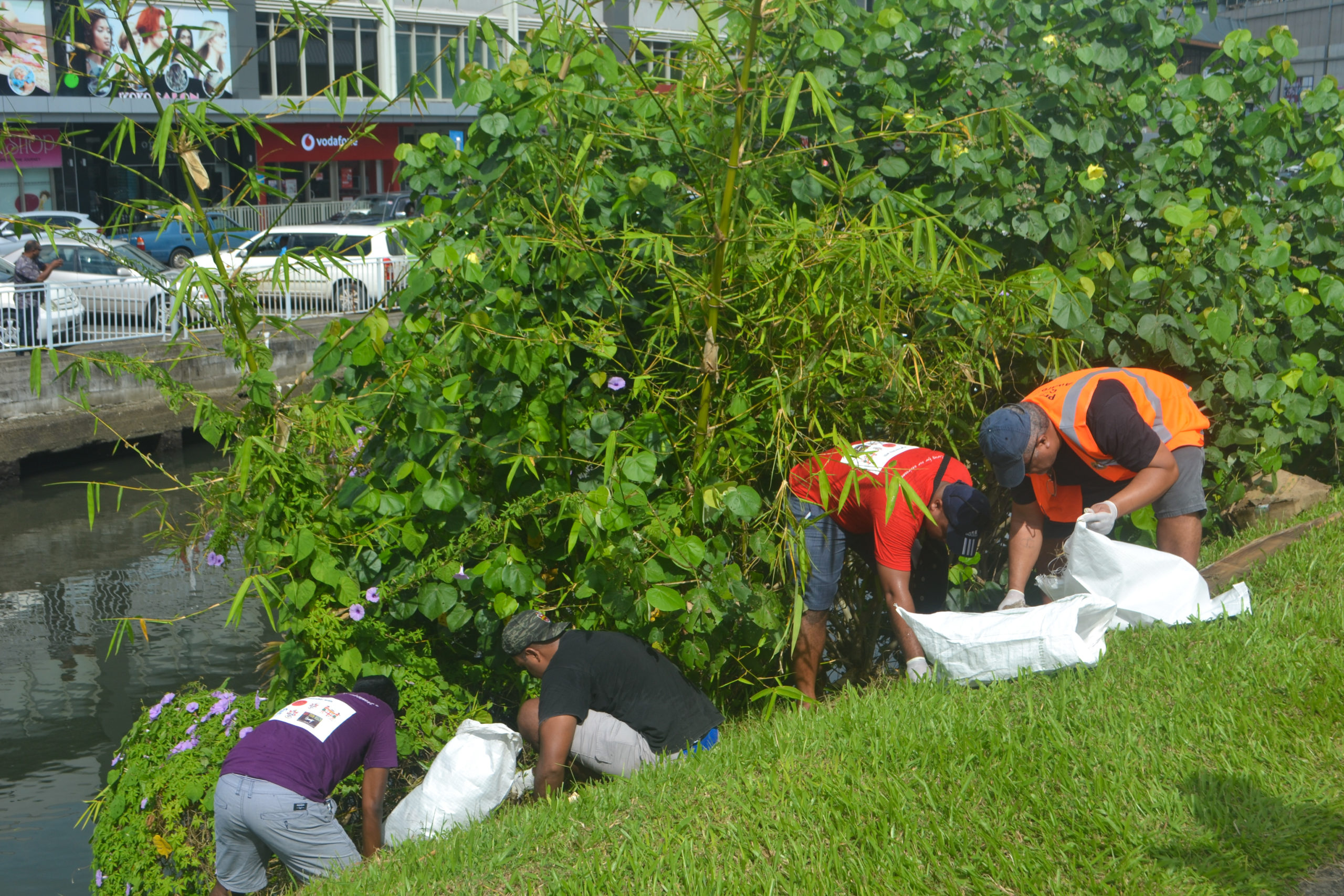
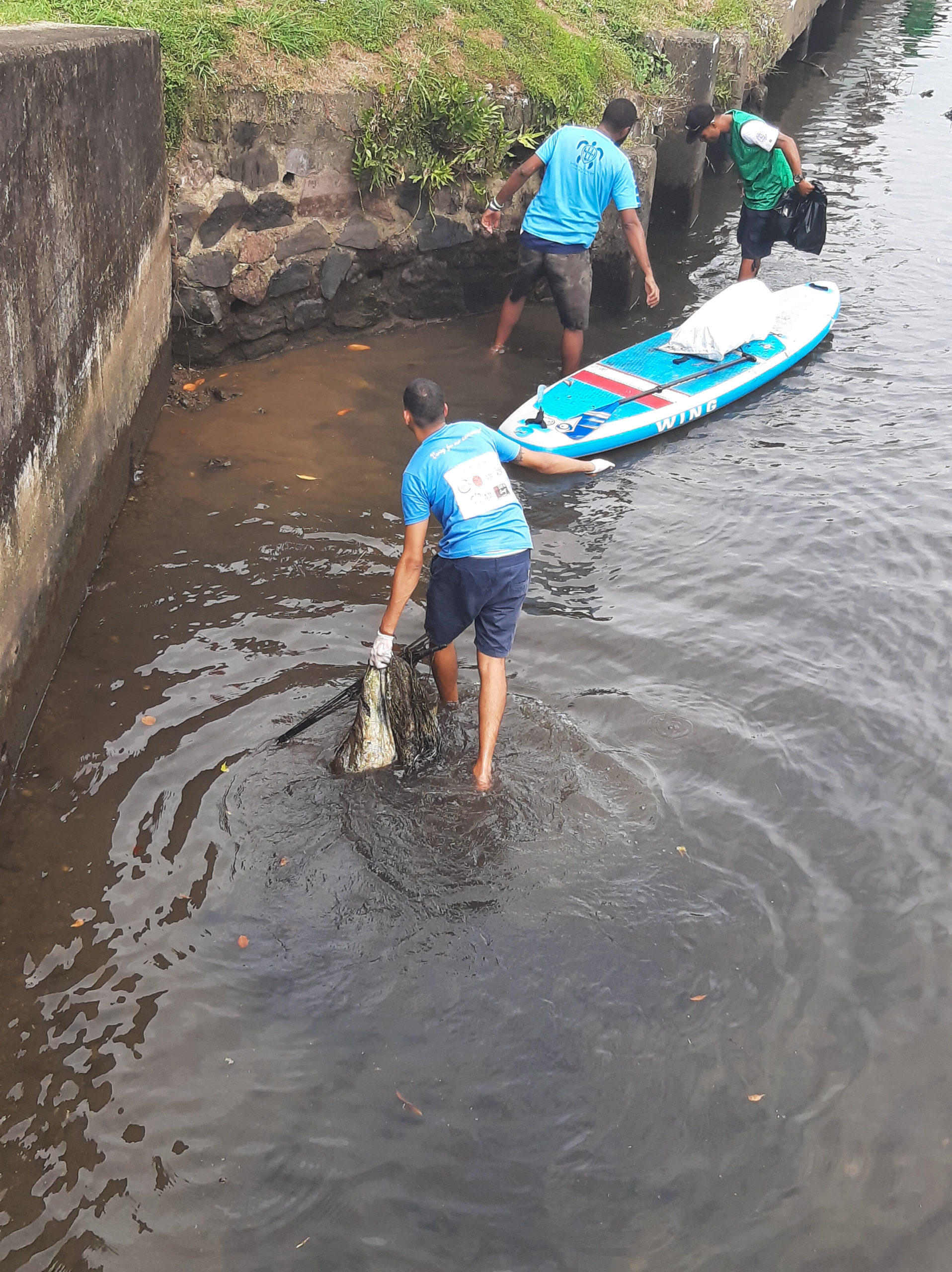
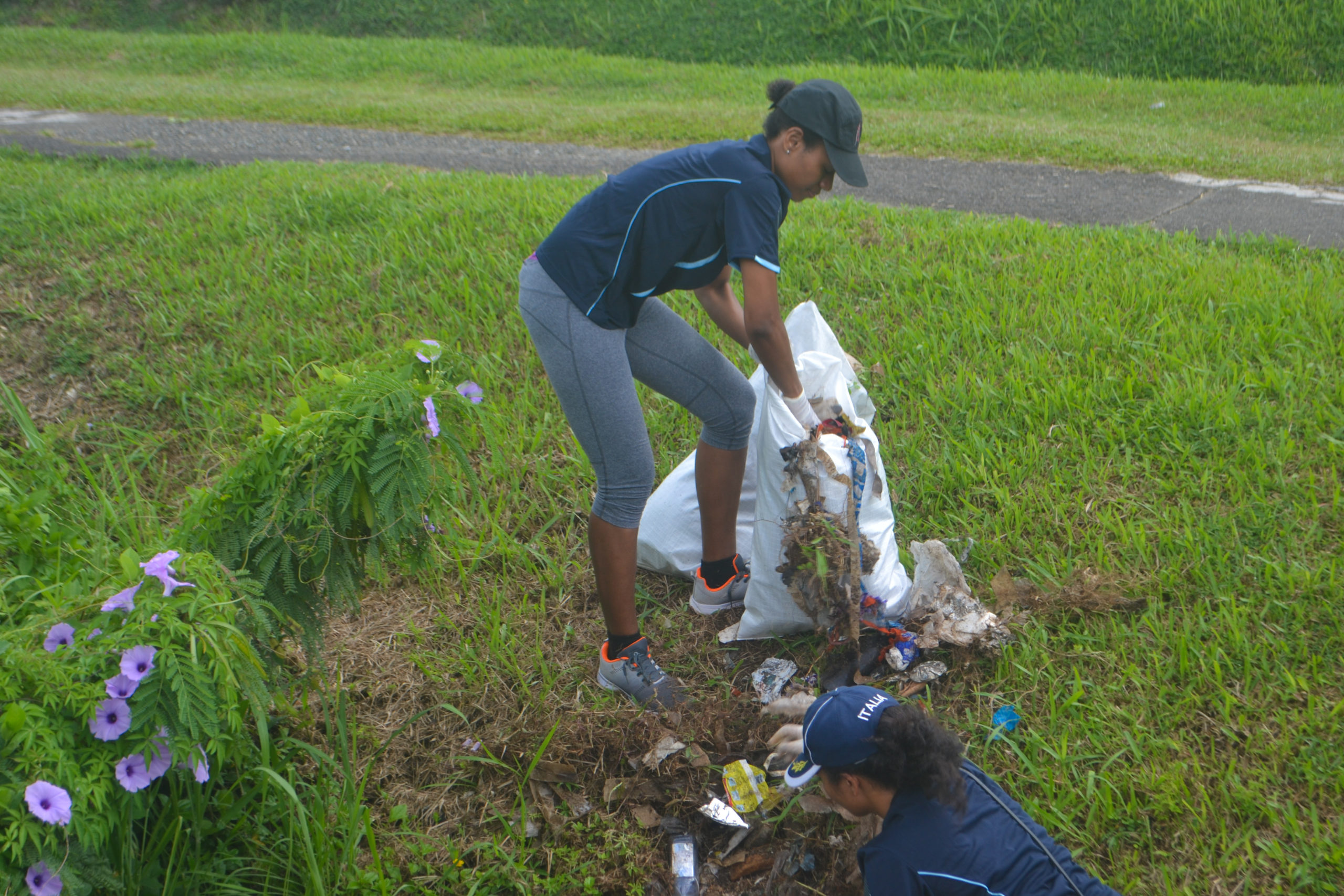
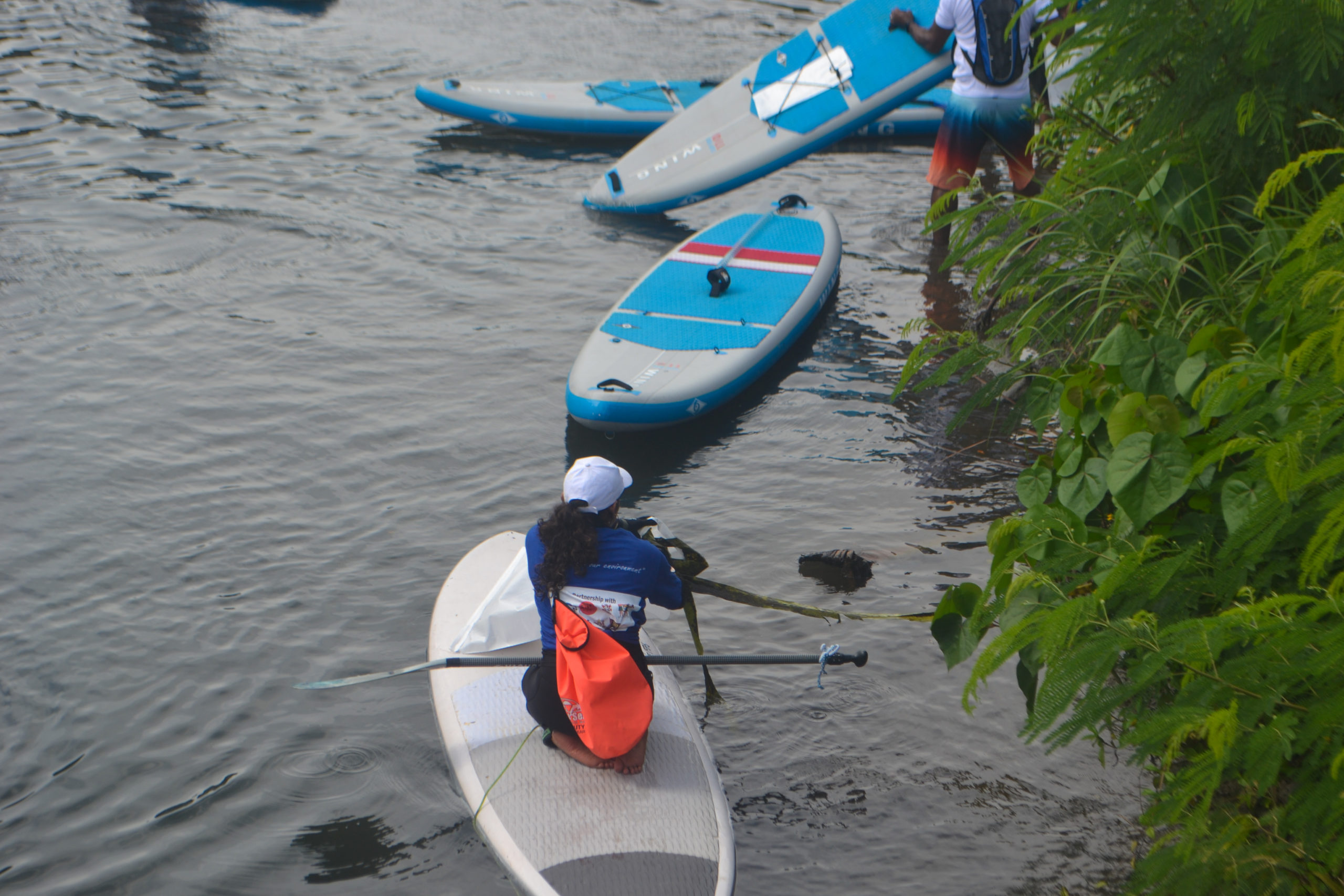
A group of paddlers have started a clean-up movement in the Fijian capital, beginning with the landmark Nabukalou Creek.
On Saturday, 27 February, members of the Suva Stand-Up Paddler team on their boards and volunteers numbering 80 fished out debris and waste material from the creek, locally known as one of the most polluted waterways in Fiji.
Suva Stand-Up Paddler representative, Roderick Lal says an increased amount of rubbish in rivers and waterways encouraged them to organise a clean-up campaign, roping in the city council and other like-minded environmental organisations.
“We want to create awareness because littering is a big problem in Suva. We chose Nabukalou Creek because rubbish thrown into the waterway has become an eye-sore for people living in Suva. The clean-up is also in line with the government’s move to ban the use of plastic and styrofoam,” said Mr Lal.
Debris and waste collected from the clean-up include rusted iron, beer bottles, cans, plastic bottles and styrofoam food packs.
“When we are paddling at sea, we see a lot of these rubbish coming from the creek and ending up in the ocean. That gave us the idea to do this on regular basis.
“We were pretty surprised when more than 80 people showed up. Shows that people care about the environment,” said Mr Lal.
Volunteers and organisations separating and loading waste materials into a skip bin.
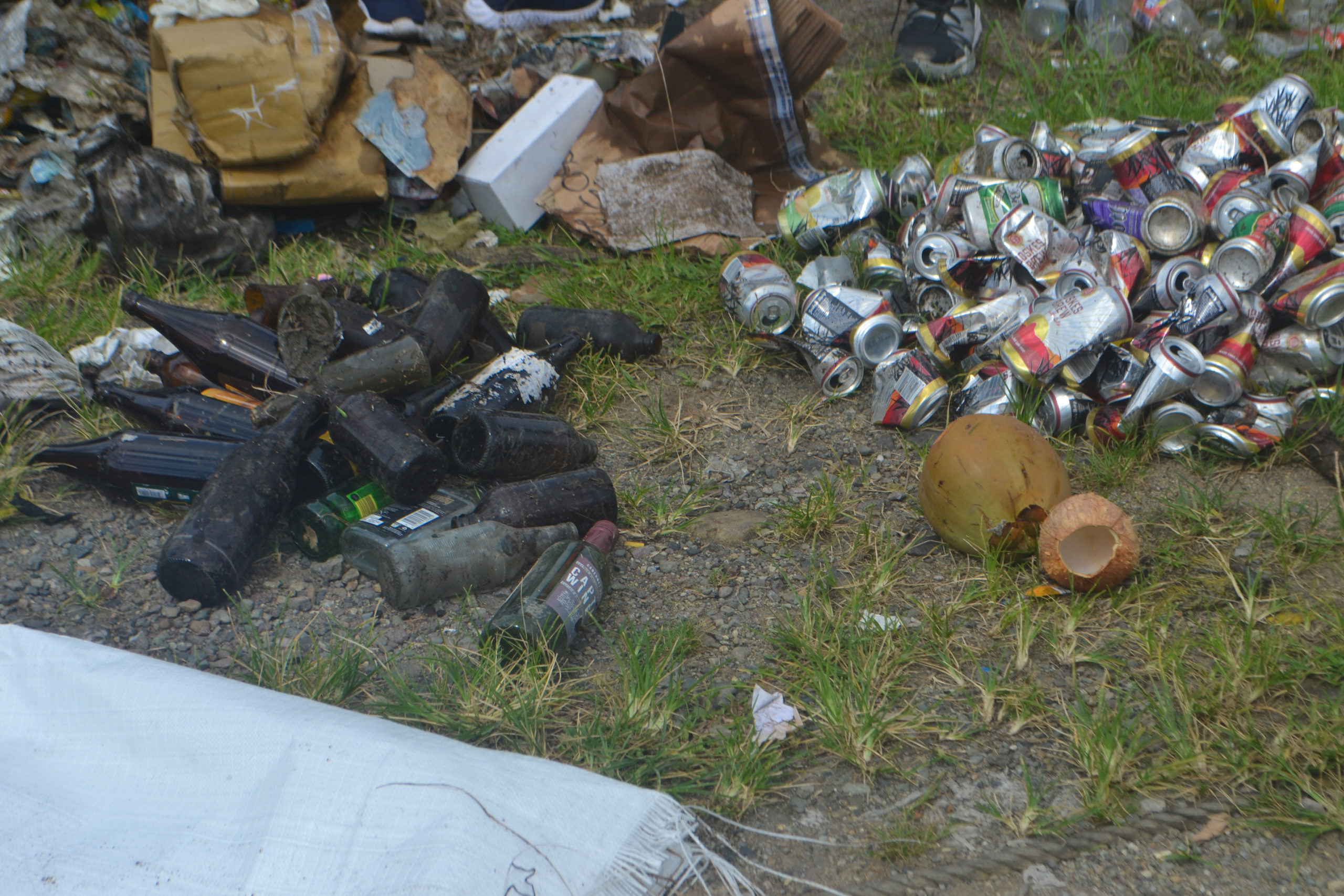
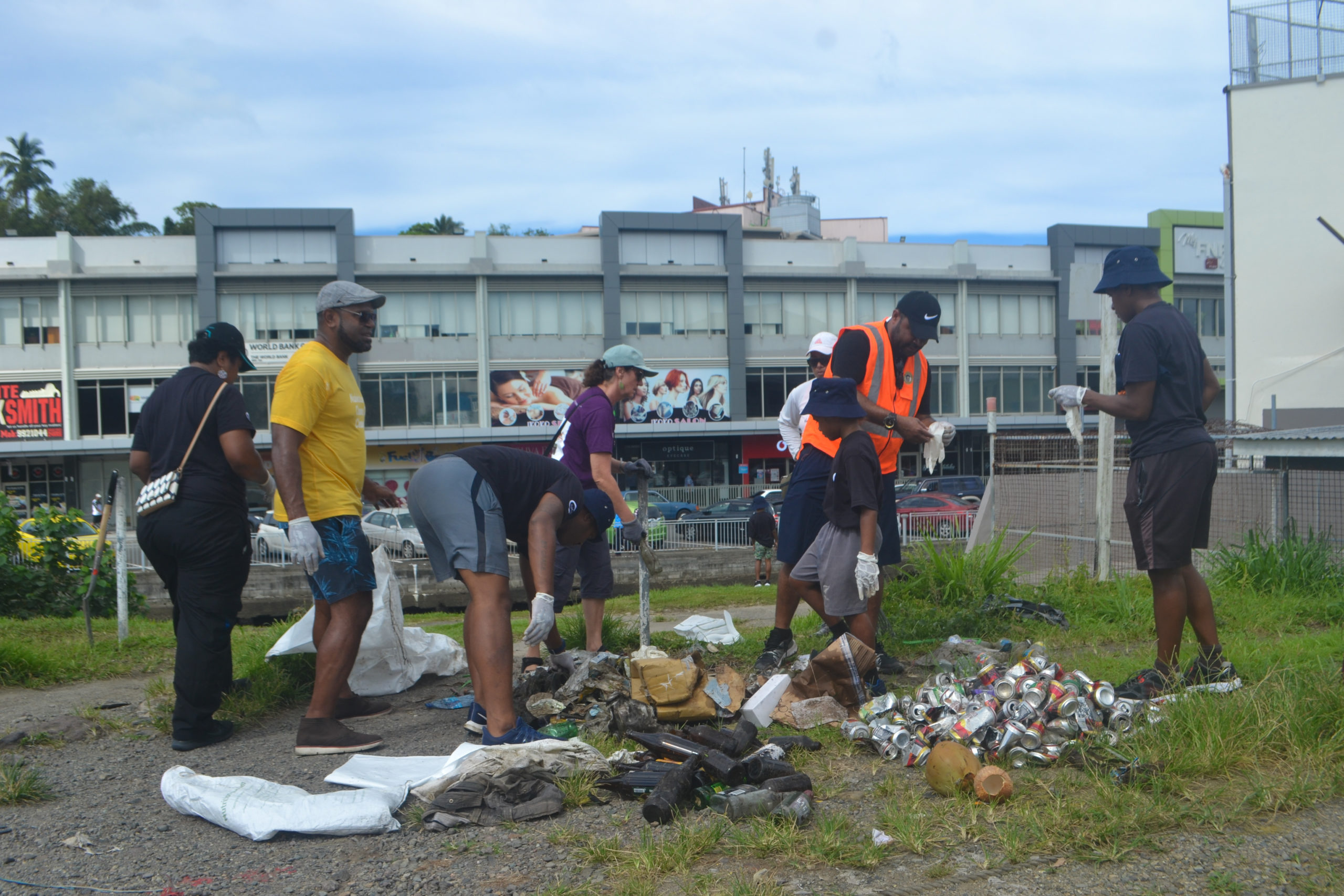
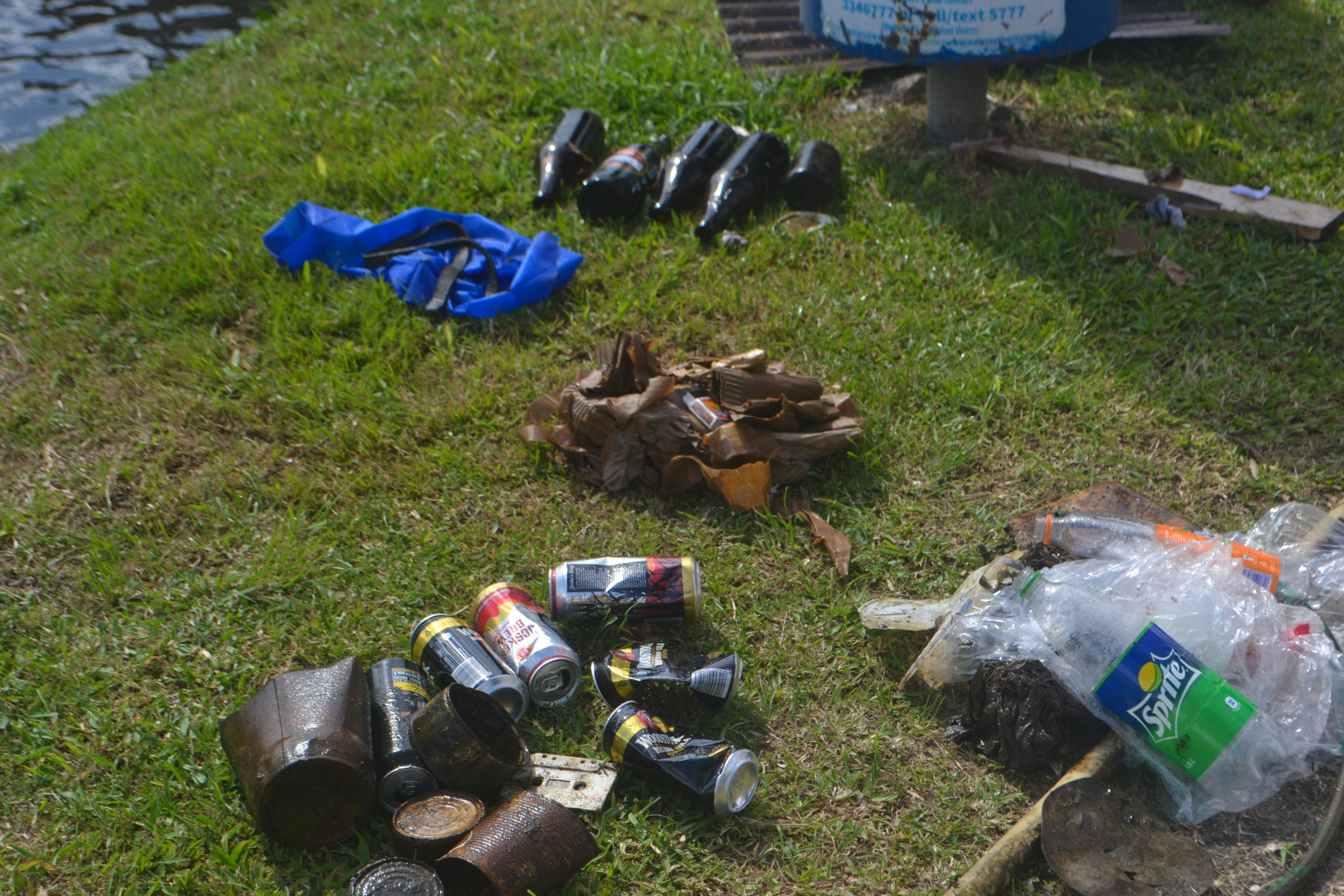
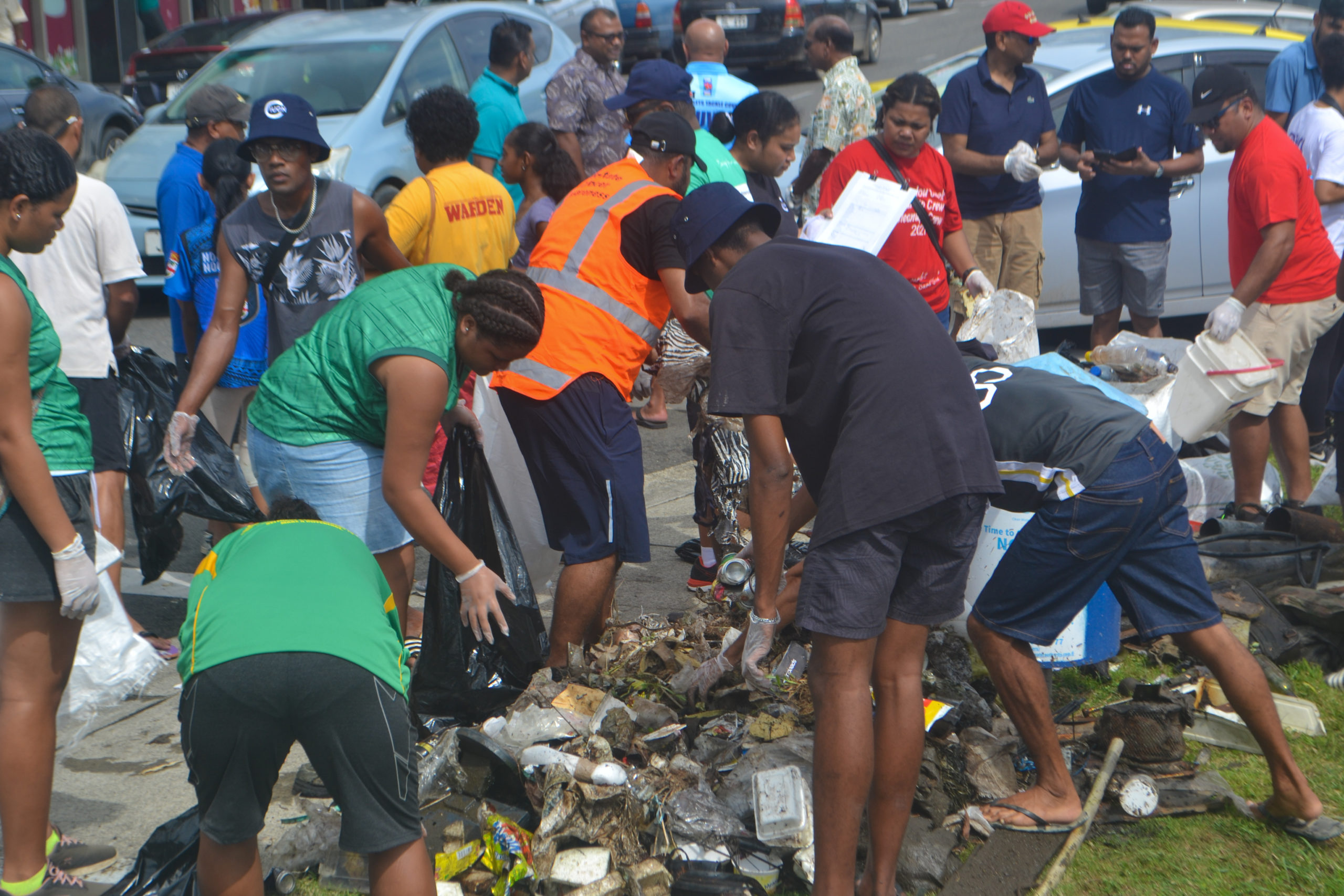
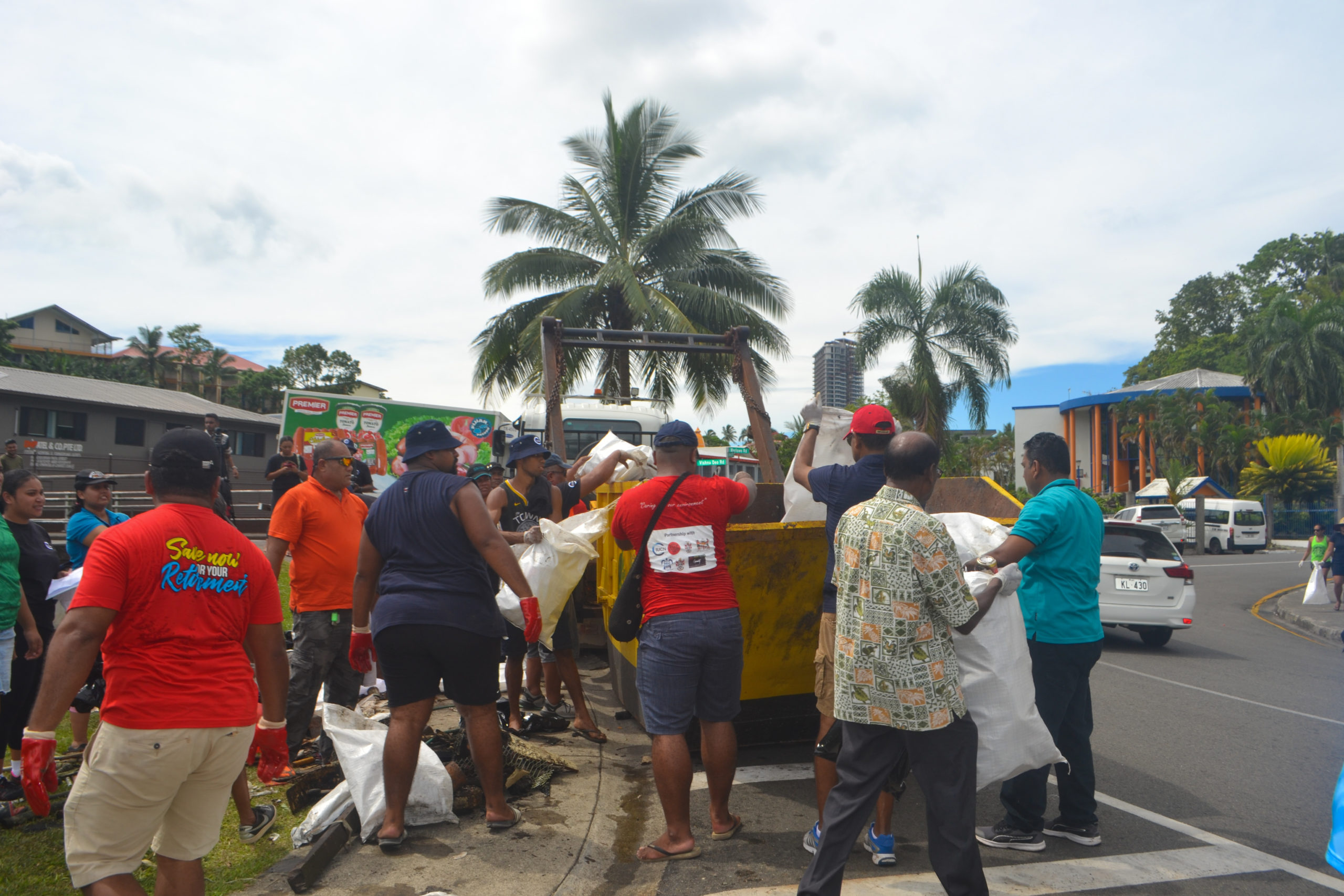
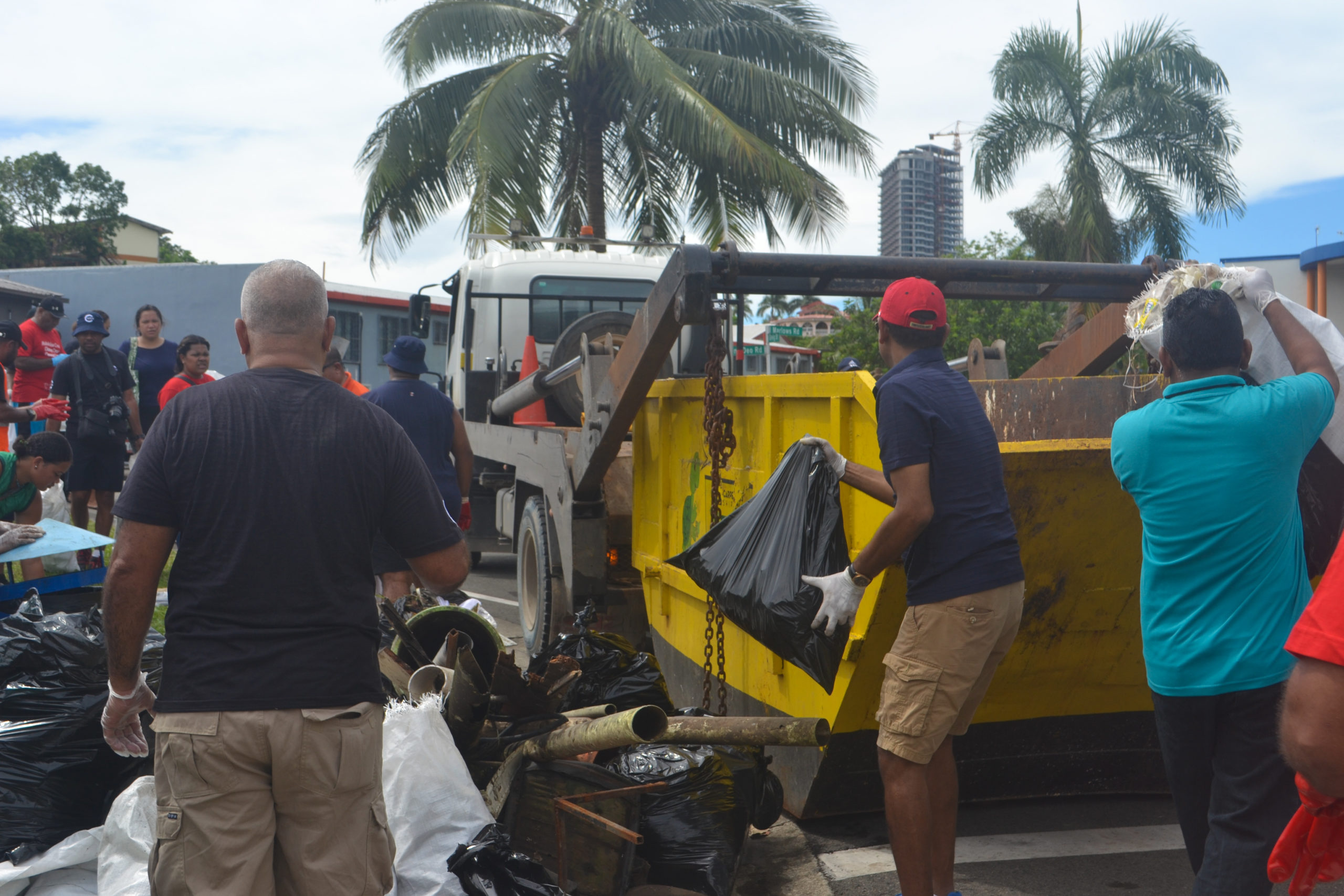
Suva City Council, Special Administrator Isikeli Tikoduadua was overwhelmed with the response from members of the public.
“We want to send a message to the people of Suva – they need to take ownership of their city and not throw their rubbish carelessly. Every rubbish they throw ends up in the creek. To address this problem, we need to stop it from the source. I hope this does not only stop in Suva. Every municipality in Fiji should be doing it because most of our towns and cities are located beside a creek or a river, said Mr Tikoduadua.
One of the volunteers, Akosita Rarama from Erasito Consultants Limited said she was carrying out her civic duty – to clean up the environment.
“There is a need for clean-up because if we don’t do it, who else will. I believe this is a good start, people have come today to show they care for the environment and want to keep the creek clean. I’m more than happy to be part of the clean-up,” said Ms Rarama.
She has a simple message for the people of Suva – “Take care of the environment and begin with your compound at home. Collect your rubbish and avoid run-offs into rivers and creeks.”
Reiterating the importance of environmental clean-up, the permanent secretary for the Ministry of Economy, Makereta Konrote said the health of the ocean is affected by plastic litter from creeks and rivers that end up in the sea and choke marine life and kill corals.
“Clean up campaigns and advocacy promotes a more responsible public behaviour towards our ocean.
“This clean-up campaign supports the Fijian Government’s policy initiatives including Fiji’s National Ocean Policy and complements initiatives such as the ban on single-use plastic bags and polystyrene containers. Together, we can work towards a clean Fiji and conserve our pristine marine resources,” Ms Konrote said.
Oceania Regional Director of International Union for the Conservation of Nature (IUCN), Mason Smith hopes this local action will be a start of social transformation needed to reduce plastic waste in the Pacific.
“Billions of people globally depend on oceans for their livelihoods which are being seriously threatened by plastic pollution with 90 % of all plastic found in the world’s oceans being carried there by just a handful of rivers.
“Therefore our efforts to combat plastic pollution begins with altering how we produce, consume and dispose of plastics. Engagement and action are needed at all levels: at the governance and policy level, by the private sector and from each one of us as consumers, said Mr Smith.
The Fiji Government delayed the ban on polystyrene products from 01 January 2021 to 31 July 2021. This is to allow businesses most affected to exhaust their current stock.
Nabukalou Creek after the cleanup
